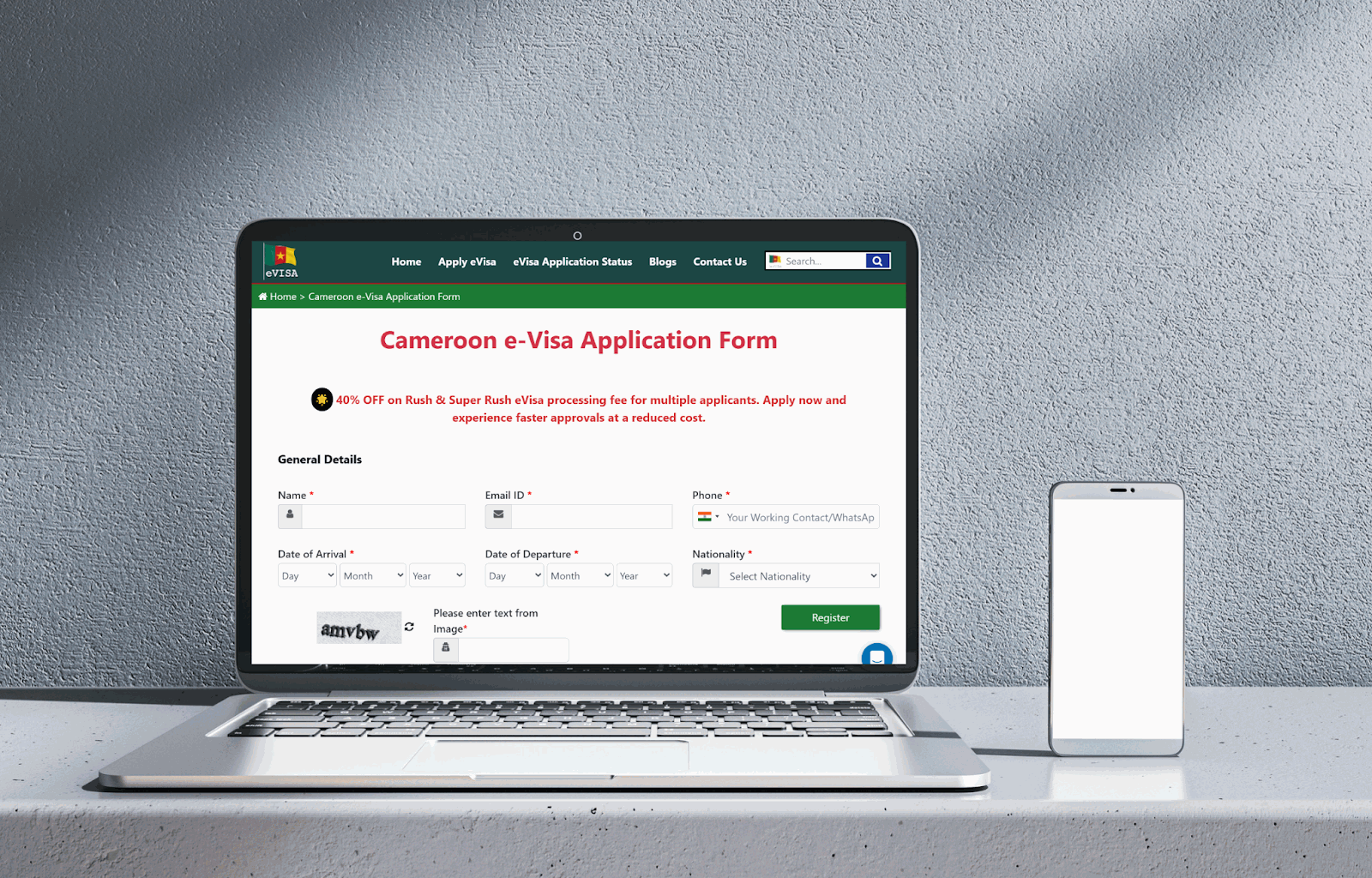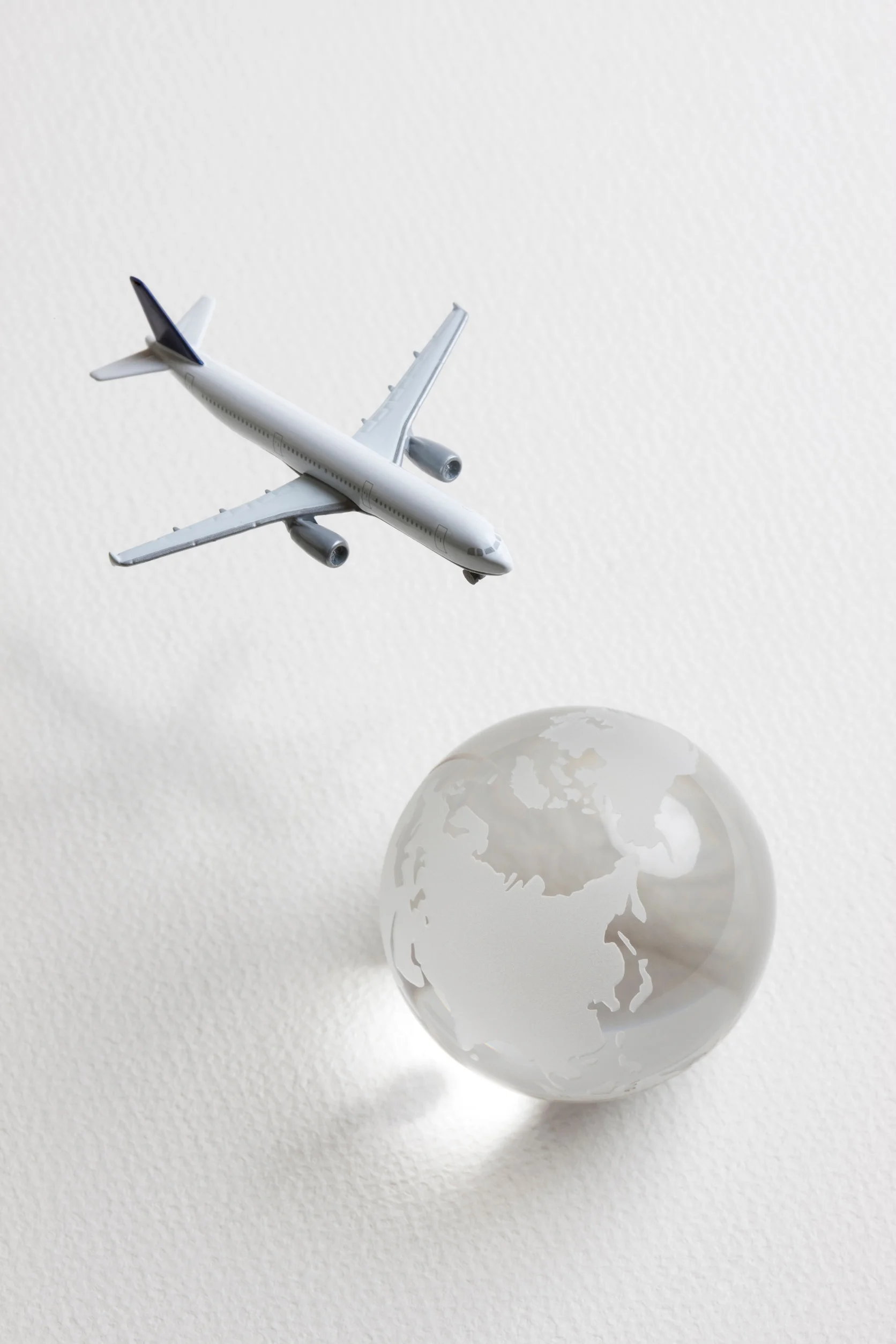Tips for a Smooth Cameroon eVisa Application Process
The Cameroon eVisa system, launched to simplify entry, offers a more streamlined application process than traditional embassy visits. However, like any online government system, it requires careful attention to detail. A smooth application isn't just about speed; it's about accuracy, completeness, and foresight. Here are essential tips to ensure your Cameroon eVisa application goes off without a hitch: double-check all personal information, upload clear and valid documents, and apply well in advance of your travel date. To begin your journey without delays, be sure to apply for Cameroon eVisa online.

1. Always Start Early
Even though the Cameroon eVisa is usually processed within a few business days, delays can still happen. Sometimes the system is slow, or you might be asked for more documents. Always apply at least 2 to 3 weeks before your trip, even if you choose the express option. This gives you extra time in case of any problems and helps you avoid last-minute stress.
2. Gather All Required Documents
The eVisa application requires several supporting documents. Having them scanned and ready in the correct format (usually PDF or JPG) before you start filling out the form will save you immense time and prevent session timeouts. Here is a checklist:
- Passport Biodata Page: Clear scan, valid for at least 6 months beyond your intended stay.
- Passport-Sized Photograph: Recent, color, white background, meeting Cameroon photo requirements.
- Flight Itinerary: Confirmed round-trip tickets.
- Proof of Accommodation: Hotel booking or a legalized invitation letter from a host in Cameroon.
- Proof of Funds: Recent bank statements (within 3 months) showing sufficient funds for your stay.
- Yellow Fever Vaccination Certificate: Essential for entry.
- Purpose of Visit Specific Documents: Business invitation letter, school acceptance letter, parental authorization for minors, etc.
3. Scan Documents Clearly and Correctly
Poor quality scans are a leading cause of application delays or rejections.
- Resolution: Ensure documents are scanned at a high enough resolution to be perfectly legible.
- Orientation: Make sure documents are correctly oriented (not upside down or sideways).
- File Size & Format: Adhere strictly to the specified file size limits and formats (PDF for multi-page documents, JPG/PNG for photos). If a document is too large, use online compression tools.
- No Photographs of Documents: Use a scanner or a reputable scanning app on your phone, not just a photo from your camera.
4. Be Very Accurate with Your Information
Everything you write on the form must match your official documents, like your passport or flight ticket. Even small mistakes can slow down your application or cause it to be rejected.
- Check carefully: Make sure names, passport numbers, birth dates, travel dates, and expiry dates are all correct.
- Keep it consistent: Your reason for travel should match your documents. For example, if you apply for a tourist visa, don’t include business papers.
5. Understand Cameroon Visa Types and Validity
Cameroon offers several eVisa types, each made for a specific purpose and length of stay. Choosing the right one is very important for a smooth application.
|
Visa Type |
Purpose |
Validity Period |
Key Requirements |
|
Transit Visa |
Passing through Cameroon to another country |
4 to 30 days |
Proof of onward travel (e.g., flight ticket to next destination) |
|
Short-Stay Visa |
Tourism, business, or family visit |
Up to 180 days |
Hotel bookings, invitation letters, or business meeting documents |
|
Long-Stay Visa |
Study, employment, or joining family |
Up to 360 days (1 year) |
Admission letter, job contract, or proof of family relationship (e.g., birth/marriage certificate) |
Tip: Always choose the visa type that matches your purpose of travel. Don’t say you’re staying longer than planned unless you have enough documents (like funds or accommodation) to support it. This helps avoid delays or rejection
6. Provide a Clear and Detailed Travel Itinerary
For tourism, a clear itinerary including specific hotels and cities you plan to visit can strengthen your application. For business, detail the companies you will engage with and the nature of your activities. Vague plans can lead to suspicion.
7. Be Honest About Your Travel History
If you have faced previous visa rejections from any country, or if there were issues with past visits (e.g., overstaying a visa), be transparent. Provide honest explanations in a cover letter if necessary. Attempting to hide information can lead to severe consequences.
8. Prepare for Payment Success
The cost of a Cameroon eVisa depends on several things: the type of visa you need (tourist, business, etc.), how many times you plan to enter Cameroon, your nationality, and how fast you want the visa processed (normal or express). To check the exact fee, visit the Cameroon eVisa fee website. There, you can find the latest fee information based on your visa type and personal details. Ensure your credit/debit card (Mastercard or Visa are commonly accepted) is enabled for international online transactions and has sufficient funds. Technical issues with payment gateways can occur, so having a backup payment method or card can be helpful.
9. Save Everything
Always save:
- A copy of your submitted application
- All uploaded documents
- Payment receipt
- Final eVisa approval
You may need these for immigration or if asked for extra proof.
10. Stay Patient and Monitor Your Application Status
After submission and payment, resist the urge to constantly contact the embassy or support. Processing takes time. The eVisa portal usually has a status checker.
Check Email Regularly: Notifications and requests for additional information will be sent to the email address you registered with. Check your spam/junk folder as well.
11. Print and Carry Your Authorization
Once approved, you will receive an "online visa authorization with a QR Code" via email. Print this document and carry it with you. While the final visa sticker is affixed upon arrival, this authorization is crucial for boarding your flight and for the initial immigration checks at the port of entry.
12. Contact Support If Needed
If you face technical issues or need help, use the contact information on the official eVisa website. They can assist with account access, document uploads, or payment problems.
Bonus Tips for Special Situations
Sometimes, your visa application needs extra documents, depending on your reason for travel or personal situation. Here’s what to prepare:
- Family Visit: If you’re visiting family or friends in Cameroon, you need a formal invitation letter from your host. This letter must be signed and legalized (approved) by local authorities in Cameroon, such as the police or a local mayor’s office. Your host should also include a copy of their ID and a proof of residence (like a utility bill or rent agreement). This proves you have a place to stay and someone responsible for you during your visit.
- Business Visit: If your trip is for business, include a letter from the Cameroonian company inviting you. It should explain why you are coming and what you will do. Also, add a letter from your own employer confirming your position and the reason for your travel. Supporting documents like business contracts or meeting schedules can help strengthen your application.
- Sponsored Trip: If someone else is paying for your travel, such as a parent or relative, include a notarized sponsorship letter. This letter must clearly state that the sponsor agrees to cover all your expenses. You also need to attach their bank statements from the past three months, their ID, and proof of employment (like a work letter or pay slip). This helps prove you have financial support.
- Minors (Under 18): Children applying for a visa must include a birth certificate to show who their parents or legal guardians are. A parental consent letter is also required and must be signed by both parents, even if one is not traveling. Also provide copies of the parents’ passports or ID cards. This shows that the child has permission to travel and who is responsible for them.
Final Reminders for Cameroon eVisa Applicants
Before you click “submit,” take a moment to review everything. Small mistakes or missing documents can cause delays or even rejection.
- Apply early and stay organized
- Double-check everything before submitting
- Carry printed and digital copies of your visa when traveling
- Make sure your passport is valid for at least 6 months
- Keep a copy of your payment receipt
- Check your email regularly for updates or requests from the eVisa portal
By following these tips, you can avoid delays, reduce stress, and greatly improve your chances of getting your Cameroon eVisa approved. This helps ensure a smooth start to your journey and a wonderful visit to this beautiful country in Central Africa.
Disclaimer: While this information was last updated in January 2026, we strongly suggest confirming all travel details with the appropriate governmental agencies, embassies, and airlines.
Applying for a Cameroon eVisa
- Step 1: Complete the online application form with your personal details and passport information.
- Step 2: Proceed to securely pay online using your credit card.
- Step 3: Check your email for payment confirmation and receipt of your Cameroon eVisa, which will be sent electronically.



